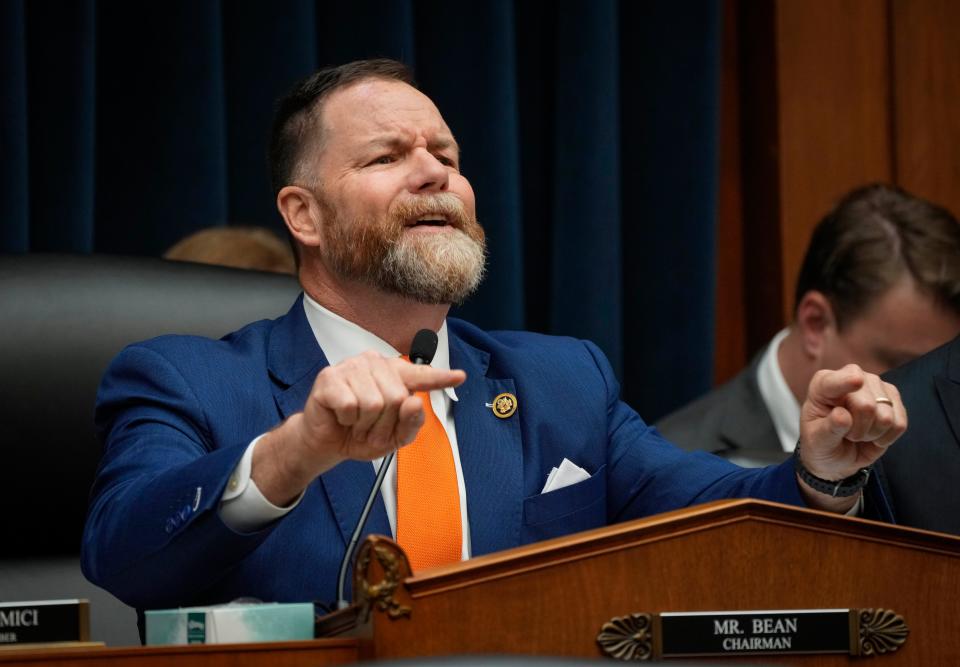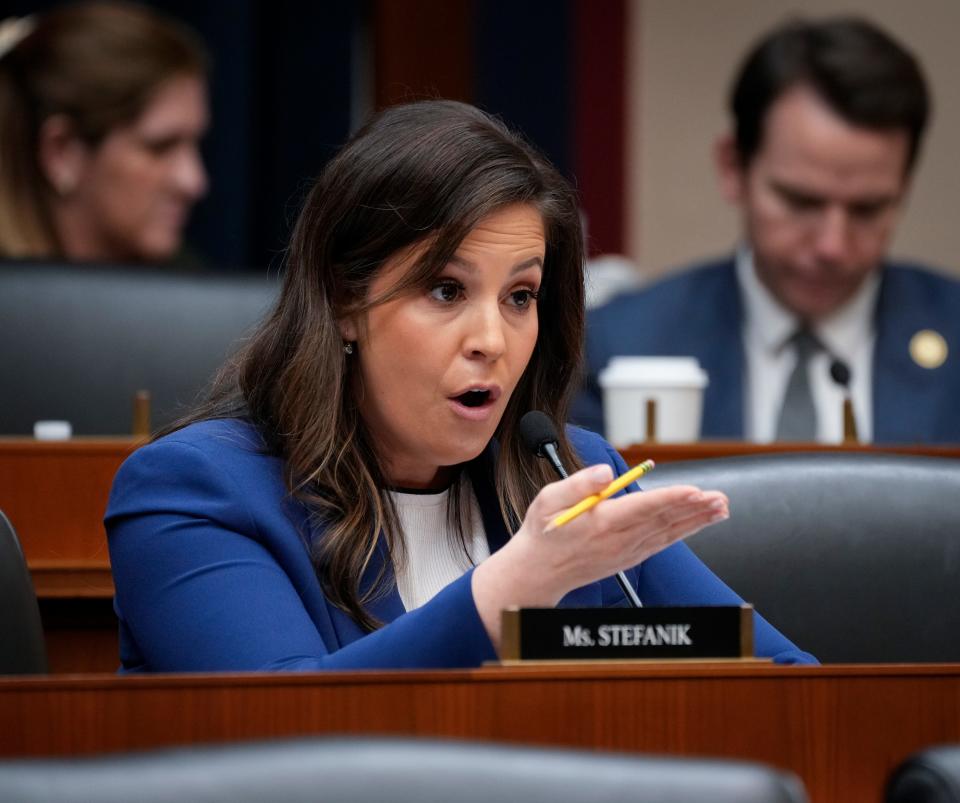Lawmakers grill K-12 school administrators in heated hearing on antisemitic incidents: 4 takeaways
WASHINGTON – House lawmakers on Wednesday grilled school administrators who have seen a rise in antisemitic incidents on their campuses, a trend that has impacted their schools and classrooms across the country.
“It is impossibly hard to grasp how antisemitism has become such a dominant force in our K-12 schools,” Chair of the House Education Subcommittee on Early Childhood Elementary and Secondary Education Aaron Bean, R-Fla., said in his opening statement. “Jewish students in their districts fear riding the bus, wearing their kippah to school or just eating and breathing as a Jewish student.”
Lawmakers on the GOP-led House Education Committee called forth the three heads of public schools this week to explain how they've tried to address and prevent antisemitic incidents against Jewish students. A staff attorney for the American Civil Liberties Union also testified before lawmakers.
The hearing comes as Republicans have zeroed in on antisemitism on campuses amid their broader effort targeting American schools.
This specific subcommittee has drawn significant attention for highlighting the rise in antisemitism since Hamas’ Oct. 7 attack on Israel. Republicans on Wednesday repeatedly sought to portray education leaders as ineffective in their job to stymie antisemitic acts.

College presidents' testimony, pro-Palestinian campus protests echo
The House hearing took place against a stark backdrop: Last year, three college presidents triggered a fierce backlash that stretched from their campuses to the White House and would prompt two of them to resign.
In a callback to that hearing, Bean kicked off the proceedings on Wednesday asking the administrators direct questions including whether Israel has the right to exist as a state, if the phrase “From the river to the sea” was antisemitic and if Oct. 7 marked a terrorist attack.
All three administrators offered answers that satisfied Bean. But the Florida Republican noted that the three college presidents who previously testified before Congress also gave similar rebukes of antisemitism, only for protests to engulf their campuses.
“Congratulations, y’all have all done a remarkable job testifying,” Bean said. “But just some college presidents before you that sat in the very same seats, they also in many instances said the right thing but then we watched the TV monitors and America watched the monitors of their campuses on fire with hatred.”
The officials testifying included David Banks, chancellor of the New York City Public Schools; Karla Silvestre, president of the Montgomery County, Maryland, Board of Education; Emerson Sykes, a senior staff attorney at the American Civil Liberties Union and Enikia Ford Morthel, the superintendent of the Berkeley, California, Unified School District.
Top Democrat challenges Republicans on Donald Trump
While both Democrats and Republicans at the hearing agreed on the need to address the rise in antisemitic incidents across the country, the top Democrat on the subcommittee, Rep. Suzanne Bonamici, D-Ore., directly challenged Republicans at the hearing to condemn former President Donald Trump, who has his own history with antisemitism.
Bonamici pointed out Trump’s comments that there were “very fine people” on both sides at a white supremacist rally in Charlottesville in 2017. The Oregon Democrat also noted that Trump had dinner with Nick Fuentes, a white supremacist and Holocaust denier.
“I have not heard one word of concern from my colleagues across the aisle. In fact, what we have seen is consolidation of support for the former president,” Bonamici said.
Bonamici asked Republicans to stand up if they condemned the former president’s past actions: “Does anyone have the courage to stand up against this?”
None stood up.
Republicans blast New York City administrator
Reps. Elise Stefanik, R-N.Y., and Brandon Williams, R-N.Y., went after New York City Public Schools Chancellor David Banks for keeping a principal of a high school that saw antisemitic incidents on the district’s payroll.
“How can Jewish students feel safe at New York City public schools if you can’t even manage to terminate the principal of Open-Season-On-Jews High School?” Williams asked. “How can Jewish students go to school knowing that he is still on your payroll?”
Banks contended that the district removed the principal from his post and that “every employee who works in our schools has due process rights.”
Stefanik slammed Banks for keeping the principal on in a different role: “What’s very concerning about these hearings is that we’re getting lip service but a lack of enforcement, a lack of accountability.”
Stefanik also took aim at a different series of antisemitic incidents in a different New York City school where students allegedly chanted “Death to Jews.”
Banks said he couldn’t discuss that particular case because it was currently under litigation, but noted that an investigation did not find that students actually chanted “Death to Jews.”

'We must fight hate in all its forms'
Rep. Jamaal Bowman, D-N.Y., a former principal of a New York City middle school, largely praised the administrators for responding to antisemitic incidents in their districts.
The New York progressive blasted Republicans for using “language around teaching hate.”
“Our teachers in our schools are not reaching hate. The majority of them. When I say the majority, I mean 99.9 percent,” Bowman said. “I have never seen that. Teachers make mistakes and teachers need to be educated and disciplined when necessary when they do make those mistakes.”
Bowman questioned all the administrators on whether other forms of hate still exist in the country, to which all three answered in the affirmative.
“We must fight hate in all its forms at the same time. I have members of Congress talking about teachers teaching hate, none of them have an education background by the way,” Bowman said, pointing out that statues in the U.S. Capitol of figures from the Confederacy outnumber statues of Black figures. “I work in an institution that teaches hate.”
This article originally appeared on USA TODAY: House lawmakers grill K-12 administrators over antisemitism: Takeaways
